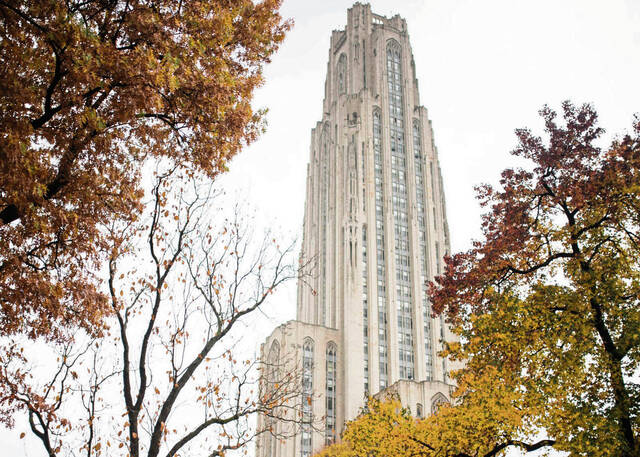Editorial: Nelson's college voucher bill leaves many questions
Pennsylvania needs to find a solution to funding its state and state-related universities and addressing the crippling student loan debt Keystone State students receive with their diplomas.
It has been a growing problem for years as tuition costs climb. Many people blame the universities themselves and a top-heavy increase in administrators that increases the cost of operation, but the schools counter that many of those administrative positions are needed to stay in compliance with government mandates.
While this isn’t a Pennsylvania-specific problem, the state has some of the highest public school costs in the country. U.S. News and World Report ranks Temple, Pitt and Penn State as the second-, sixth- and ninth-most expensive in-state tuitions, respectively, while ranking 103rd, 59th and 63rd in quality.
Students are paying steakhouse money for a diner education.
So a proposal like that from state Rep. Eric Nelson, R-Hempfield, has some appeal.
Nelson introduced a bill Wednesday that would take away the money from the three universities — the largest in the state. Penn State is one of the largest in the country.
Instead, it would place it in the hands of the students to use at whatever post-secondary schools they choose. That includes career and technical programs and community colleges, where the costs are much lower and where the up to $8,000 per year will stretch further than at a university with $20,000 tuition.
But will it actually work?
The problem with voucher programs as proposed for K-12 public schools has often been one of access. At the post-secondary level, this could be even more evident.
Pitt, Penn State and Temple are not going to curl up and die overnight. A guarantee of $8,000 in funding to go to those schools could be a major selling point for applicants. But without the regular, reliable stream of funding from state appropriations, will the state-related universities be able to guarantee they will have the openings?
Will any schools be able to do that? Would it make the state-related school even less tethered to the state and more in line with private universities such as the University of Pennsylvania or Carnegie Mellon? Would it actually drive up tuition at the big three to make up for the uncertainty?
And then there is the impact on the communities that depend on those schools.
Nelson’s voucher program is an idea worth talking about, worth brainstorming and worth considering in a pilot program of some kind. But as a bill ready to go to the House Education Committee for a vote, it seems premature.
Remove the ads from your TribLIVE reading experience but still support the journalists who create the content with TribLIVE Ad-Free.

